On safari
It’s 5:23 am and the sun rises behind a group of Acacia trees as I look at the orange savannah from the third row of a van. I’m in Kruger National Park on safari.
Safari means voyage in Swahili and it definitely feels like an adventure, but not in the way I imagined it.
I thought we’d be all alone in nature traversing through the vast wilderness with our guide intrepidly crossing creeks and going up hills to silently observe a savage battle between lion and buffalo.
Our guide, Rufus, is there, as are my friends. The thing is that dozens of other people are there too. We drive paved roads (and the occasional dirt trails) and we’re mostly stuck in a car jam whenever we see one of the big five (lion, leopard, rhino, elephant, and buffalo).
The safari was a cool experience, of course.
Waking up at 5 am and seeing the sunrise, catching cute ugly hyenas sleeping on the pavement as it retains heat, or watching a herd of elephants for the first time were all highlights. We saw a ton: giraffes, two leopards from afar, buffalos, a lone lion crossing the road, hippos, crocs, and heard thousands of birds.
I just didn’t expect it to feel so tamed, so like a part of civilization. This is evidently not a zoo. Kruger National Park is one of the world’s largest parks, measuring 2 million hectares—the size of Slovenia.
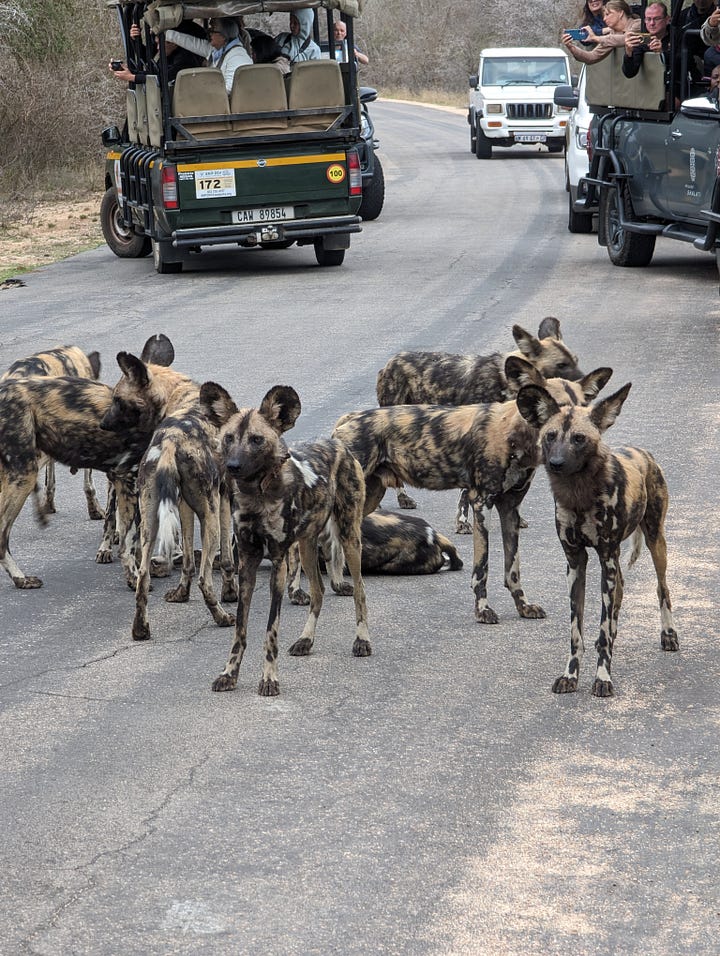
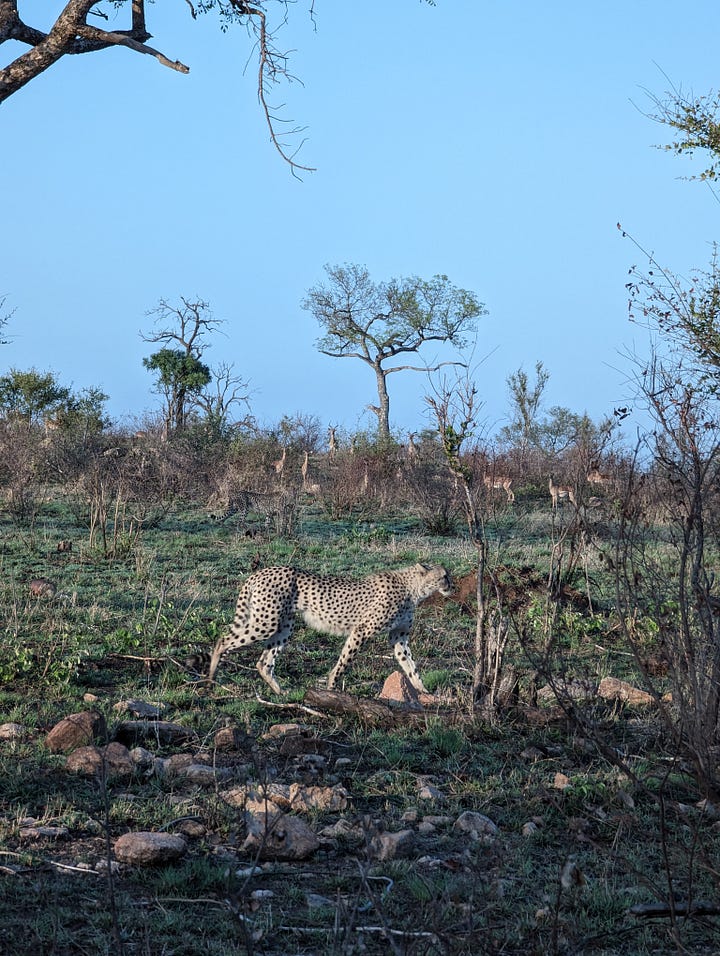
Of course if you shell an extra thousand dollars a night, you can feel more immersed. There are five star hotels within private reserves where there are no roads and you can actually drive through the savannah, getting razor close to the animals.
My overwhelming realization is that there is no true wilderness anymore, except in some truly inaccessible places like Antarctica or the Sahara. We allow “wild” places to happen in specific reserves, gated and guarded against human disruption, not the other way around.
What does wilderness even mean? Is it a romantic but naive idea of being an explorer, of discovering places, of being in unspoiled nature?
How to deal with nature?
I. Private property
In that same South Africa trip, on our drive from Johannesburg to Kruger, we passed through endless stretches of commercial farmland. Electric fences with security cameras enclosed hundreds of thousands of hectares that rolled on as far as the eye could see.
A couple hours in, we passed a “Stop Farm Murders” sign in a banana plantation.
I asked our driver, Kevin, and he told me people were killing farm workers to make a political statement for the land concentration issue. White people apparently own 70% of all land in South Africa, while black people only 10% The sad irony is that these workers aren't the landowners, they're just trying to make a living, yet they're bearing the violence meant for a system they don't control.
As we drove past plantation after plantation—eucalyptus, pine, macadamia—Kevin's comment started making sense. These weren't just any farms. They were massive operations, thousands of hectares each, illustrating how concentrated land ownership is.
I did my own research and it turns out that white individuals own 26.7 million hectares, about 72% of private farmland, which is roughly 22% of the country's total land. Still, this is a big issue because 82% of the population is black.
There have been proposals to seize land from the white owners, and—more frightening—even calls for violence against white people (like the one made by Julius Malema, leader of the country’s fourth largest political party).
This is a complex topic that leads to larger questions about private property, history, regulations, externalities and freedom.
II. Ecological imperialism
Europe is a country with strict regulation of what you can do in your land.
Farmland has to stay as farmland, you can’t build a big house or develop it into something else. Nature preserves are protected. Even vistas are protected (as in the Cotswolds in England).
Yet, Europeans consume almost 9 million tonnes of tissue paper and that will most likely come from a forest plantation. Maybe directly from one of these plantations.
Academics have termed this ecological imperialism. I don’t like the name because it’s simplistic and Manichean. It does point to a hypocrisy (or maybe just ignorance?) of people in the west—especially governments. They protect their landscape at all costs, but allow their companies to exploit the landscapes of developing countries.
I saw something similar in Colombia with eucalyptus trees being planted in the coffee axis. Those monocultures erode the land and create landslides, making the cultivation of coffee increasingly difficult. There’s this growing tension.
III. What changed?
We’ve been tending nature for hundreds of thousands of years, but this past century the growth has been exponential. Everything changes with scale.
It’s one thing for a community to slowly plant trees for logging, interspersing them with native ones, allowing a diverse ecosystem to remain. It’s a different thing when a corporation buys thousands of hectares and plants millions of trees in neat rows so close together that no other plant life can grow in the ground because there’s no sunlight.
The Central Valley of California has stripped millions of hectares to plant 170 million almond trees. The size is so large and the ecosystem so diminished by this monoculture that every year, almost all honeybees in the United States have to be imported to help with pollination. More than 4 billion bees pollinate 1 trillion flowers that eventually become the almond seeds we eat.
Those bees are considered livestock. Yet, if it weren’t for them, none of it would work. They point to how fragile these enormous systems are.
We are so separated from the act of growing food that we don’t even think about how it happens, or the ecosystem it disrupts. (I wish Angelenos realized this when they order their coffees with almond or oat “milk”, feeling like champions of sustainability).
And yet it’s not all harm. There’s always more nuance.
This is not a plea to go back to the way things were when we were hunter gatherers because there’s no way we could sustain a population of 9 billion on foraging or small-scale agriculture.
But it’s interesting what these ideas of wilderness, of naturalness, hold so much significance in our imagination. We crave to inhabit a world where things were wild, when we lived connected—and constrained—by natural conditions.
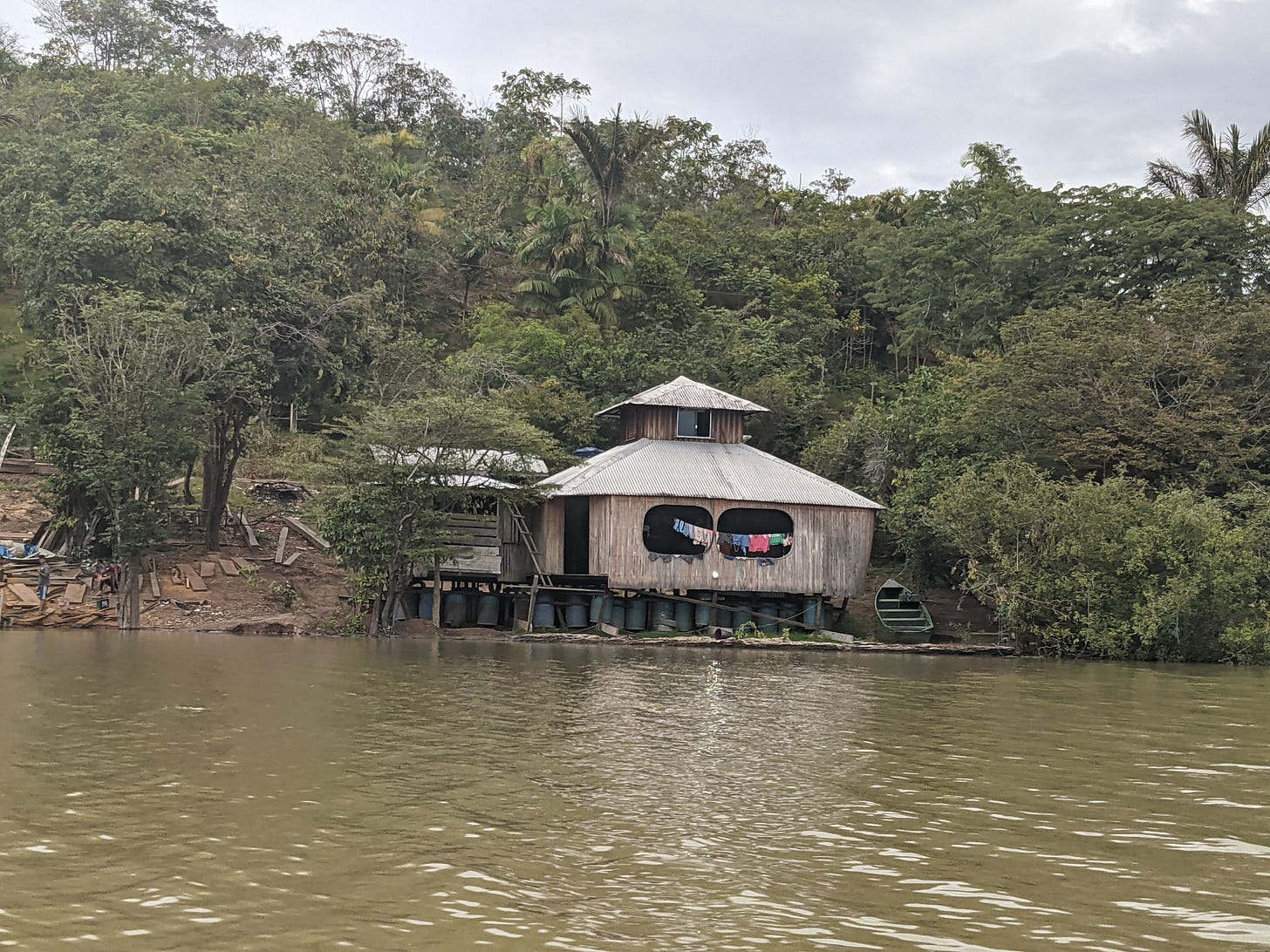
IV. Idealizing nature
Now, we are connected—and constrained—by screens, by a system that has brought unimaginable prosperity and progress, but one that also disconnects us from our evolutionary traits.
We romanticize nature and our ancestors who lived from the land, but often forget the brutality of nature. One unusually cold winter and people would freeze to death, one especially hot summer and our crops would fail. We tended it not for the wishy-washy feeling of being one with nature but to exploit it in the most efficient way. We cultivated and genetically modified species over millennia to get more sweetness, more nutrition, higher yields.
Most importantly, we forget that our natural condition as human beings for 99% of our history has been abject poverty and difficulty. It’s naïveté that so many people romanticize the past.
Now, thanks to our technology, we have the opposite problem. We have too much. Which raises the question: when young, educated people from rich countries call for dismantling industrial agriculture, are they motivated by genuine concern for the planet, or by guilt over their own comfort? And what happens to the poor if they get their way?
So yeah I have trouble giving a moral verdict to people transforming their landscape to earn money and improve their material conditions while knowingly or unknowingly wreaking havoc to the larger ecosystem. I don’t think it’s bad, and to think that would be to not understand poverty or need. But I do think it can be done differently.
Safaris, adventure travel, and retreats represent a deep-seated desire to feel part of nature once again. To be reminded of its power; to reconnect with the beautiful and brutal cycle of life and death that nature is.
But only for a week.
Then we get to go back to our air conditioned apartment, with instant hot water, a fridge full of food, and same day delivery of any good imaginable, living better than kings did a century ago. I definitely think that’s a good thing.
postscript 📮
Guys, I wrote the beginning of this essay after my trip to South Africa and—as I sadly often do—put it away, telling myself that it wasn’t perfect yet.
I re-read it a couple days ago and thank God for this project because the rest of it just erupted from me so effortlessly, so powerfully that it caught me completely off guard.
Have you been on safari? If so, what was your experience?
Do you think our need to "escape to nature" says something about how we've organized our lives? Our cities? Our jobs?
In the great milk wars of our time, which side are you on? Be honest.

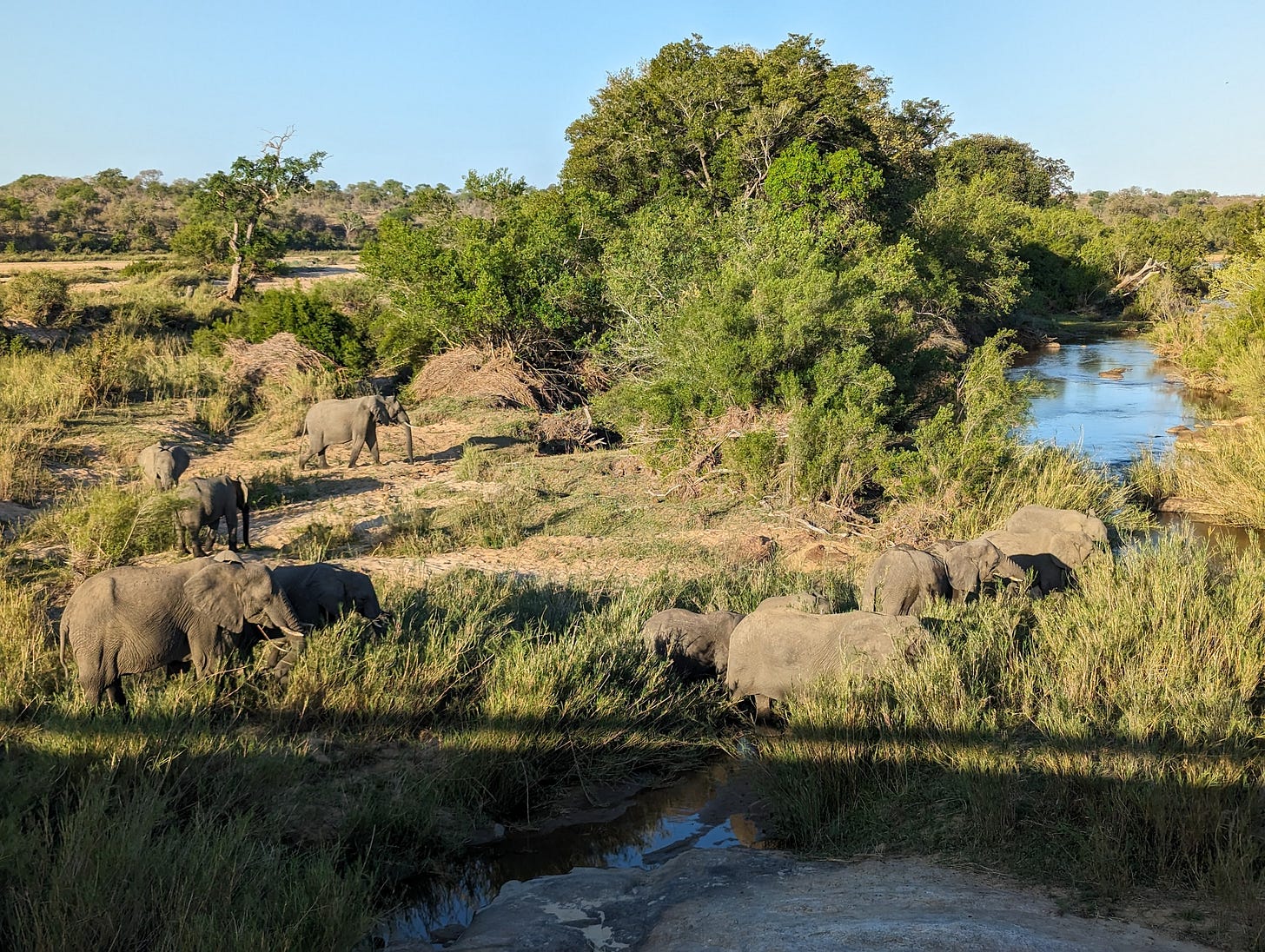
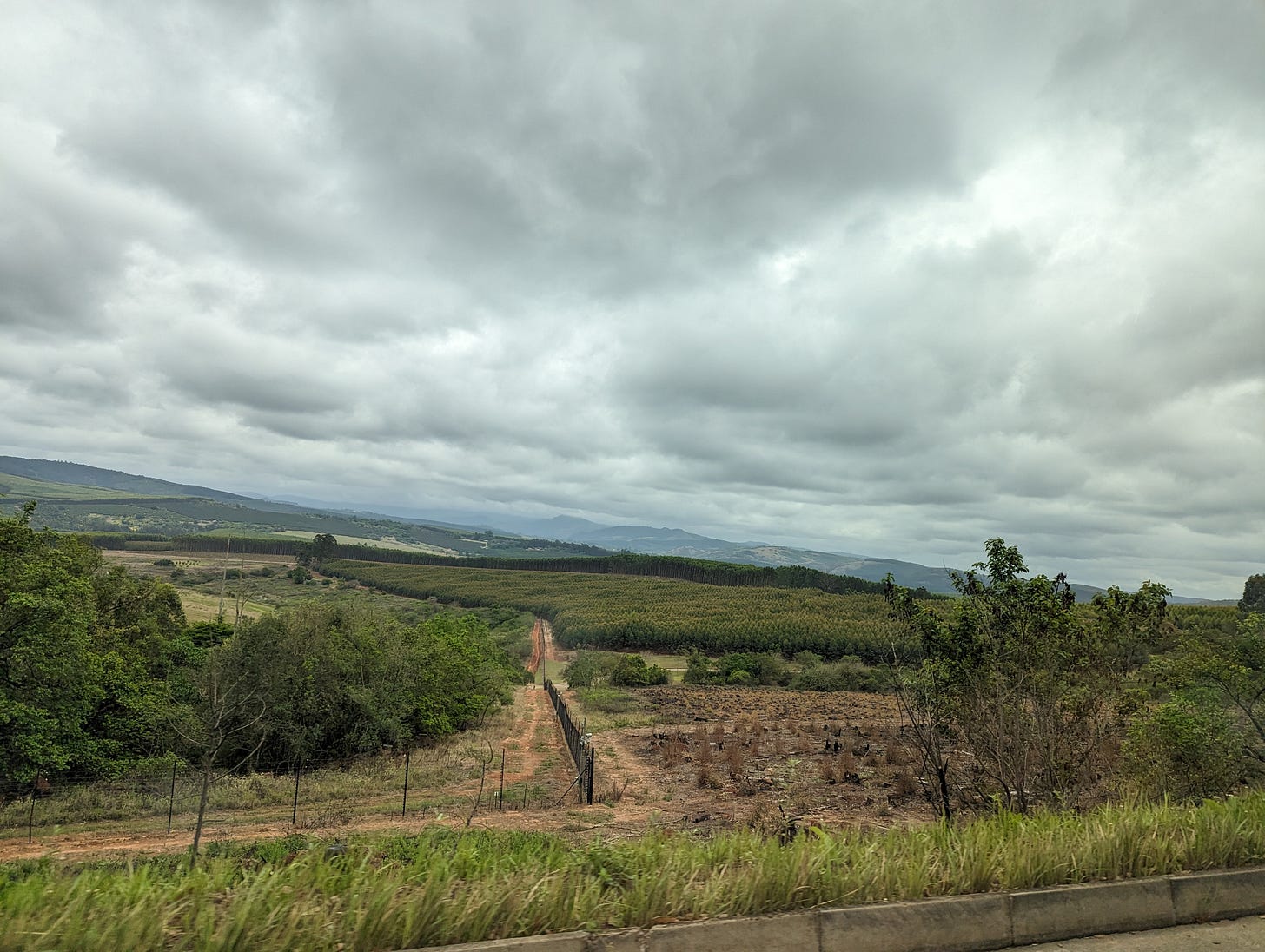
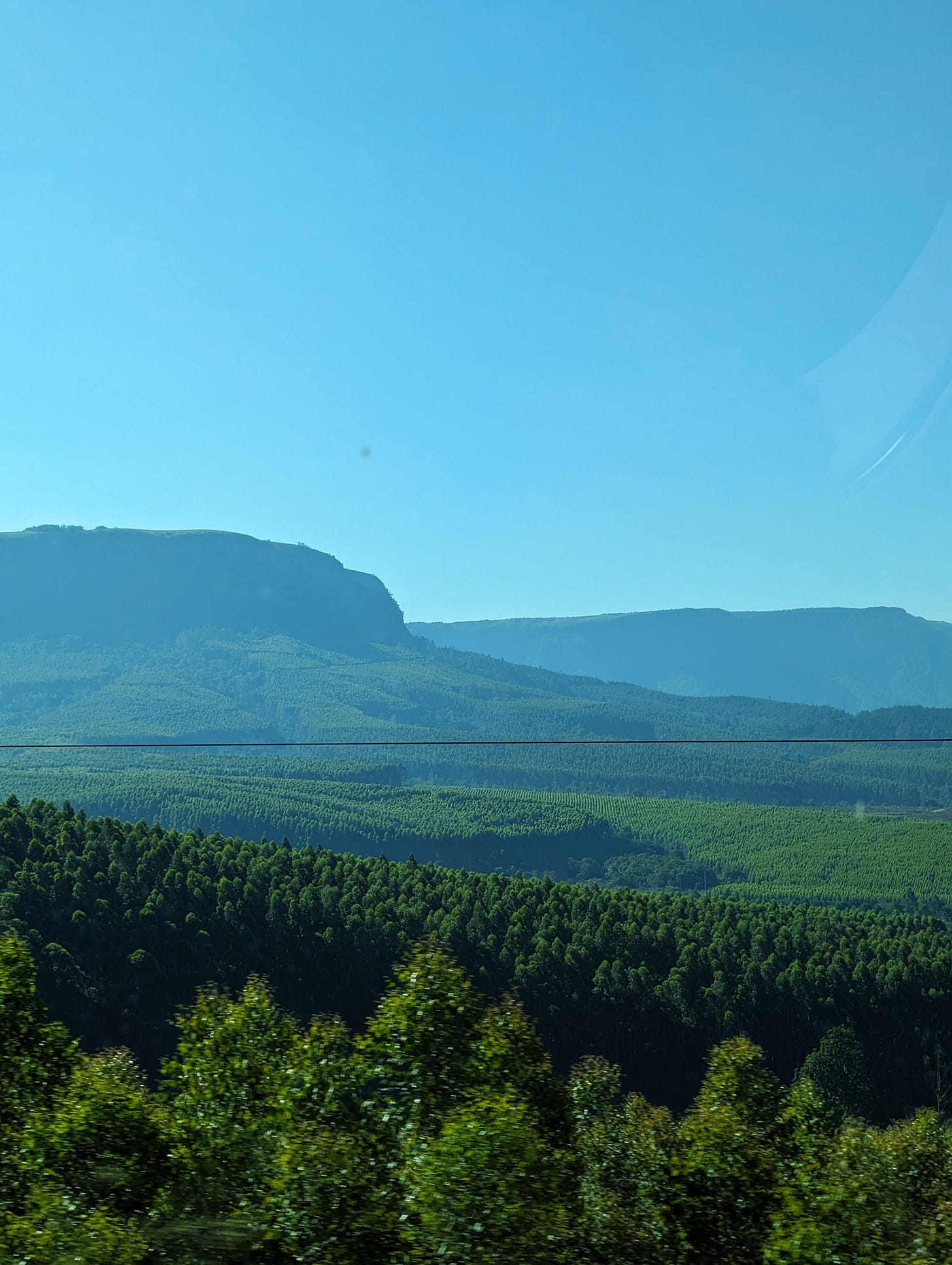
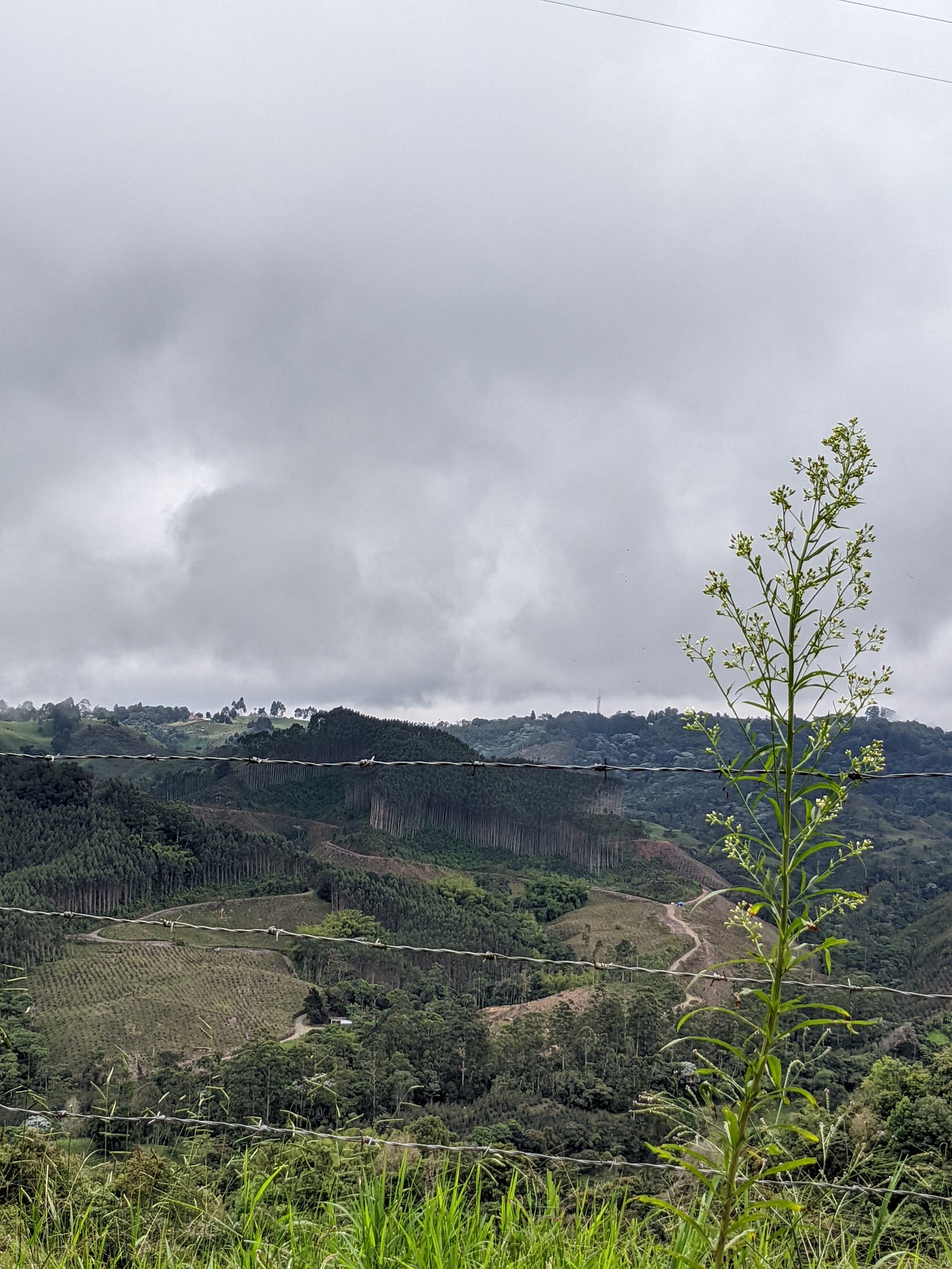
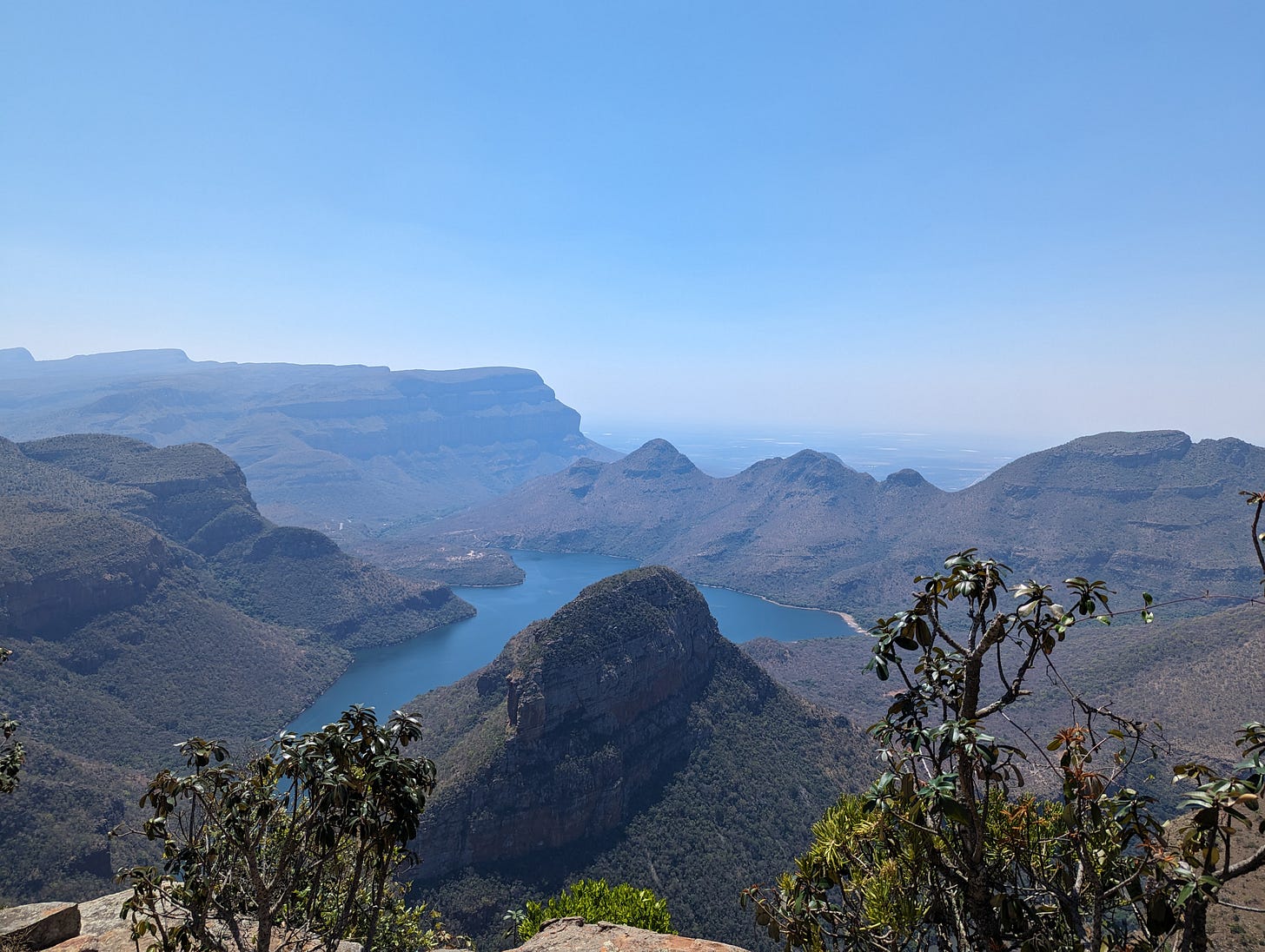
The question of romanticizing nature is a good one! The world of remote work should make it easier to have both, but it doesn’t seem to solve for the community problem. (The word “remote” is even interesting to me in that it specifically implies a lack of community…).
Personally I quite like the balance of an industrious (though not industrial) city that has nature incorporated well, + weekend trips to more remote places. But when the city gives no indication of nature, I get claustrophobic quickly.